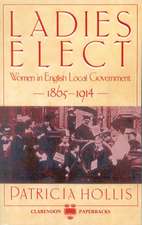Sanitation in Urban Britain, 1560-1700: Perspectives in Economic and Social History
Autor Leona J. Skeltonen Limba Engleză Hardback – 8 dec 2015
Taking an extensive tour of over thirty towns and cities across early modern Britain, focusing on Edinburgh and York as in-depth case studies, this book sheds light on the complex relationship between how governors organised street cleaning, managed waste disposal and regulated the cleanliness of the outdoor environment, top-down, and how typical urban inhabitants self-regulated their neighbourhoods, bottom-up. The urban-rural manure trade, sanitation infrastructure, waste-disposal technology, plague epidemics, contemporary understandings of malodours and miasmatic disease transmission and urban agriculture are also analysed.
This book will enable undergraduates, postgraduates and established academics to deepen their understanding of daily life and sensory experiences in the early modern British town. This innovative work will appeal to social, cultural and legal historians as well as researchers of history of medicine and public health.
Din seria Perspectives in Economic and Social History
-
 Preț: 277.56 lei
Preț: 277.56 lei -
 Preț: 311.81 lei
Preț: 311.81 lei -
 Preț: 312.34 lei
Preț: 312.34 lei -
 Preț: 449.41 lei
Preț: 449.41 lei - 18%
 Preț: 1111.40 lei
Preț: 1111.40 lei -
 Preț: 489.26 lei
Preț: 489.26 lei - 18%
 Preț: 1161.31 lei
Preț: 1161.31 lei - 18%
 Preț: 1058.38 lei
Preț: 1058.38 lei - 18%
 Preț: 1056.95 lei
Preț: 1056.95 lei -
 Preț: 132.04 lei
Preț: 132.04 lei -
 Preț: 212.61 lei
Preț: 212.61 lei -
 Preț: 449.41 lei
Preț: 449.41 lei - 18%
 Preț: 947.90 lei
Preț: 947.90 lei - 18%
 Preț: 1057.89 lei
Preț: 1057.89 lei - 18%
 Preț: 1061.22 lei
Preț: 1061.22 lei - 18%
 Preț: 1109.99 lei
Preț: 1109.99 lei - 18%
 Preț: 1112.83 lei
Preț: 1112.83 lei - 18%
 Preț: 1057.75 lei
Preț: 1057.75 lei - 18%
 Preț: 1054.71 lei
Preț: 1054.71 lei - 18%
 Preț: 1057.26 lei
Preț: 1057.26 lei - 18%
 Preț: 1161.31 lei
Preț: 1161.31 lei - 18%
 Preț: 1112.65 lei
Preț: 1112.65 lei - 18%
 Preț: 1112.83 lei
Preț: 1112.83 lei - 18%
 Preț: 1002.63 lei
Preț: 1002.63 lei - 18%
 Preț: 1112.21 lei
Preț: 1112.21 lei -
 Preț: 449.41 lei
Preț: 449.41 lei - 18%
 Preț: 1112.03 lei
Preț: 1112.03 lei -
 Preț: 445.95 lei
Preț: 445.95 lei - 18%
 Preț: 1058.52 lei
Preț: 1058.52 lei - 18%
 Preț: 1053.16 lei
Preț: 1053.16 lei - 18%
 Preț: 702.85 lei
Preț: 702.85 lei - 18%
 Preț: 1109.36 lei
Preț: 1109.36 lei - 18%
 Preț: 1057.75 lei
Preț: 1057.75 lei - 18%
 Preț: 1056.80 lei
Preț: 1056.80 lei - 18%
 Preț: 1110.29 lei
Preț: 1110.29 lei - 18%
 Preț: 1056.32 lei
Preț: 1056.32 lei - 18%
 Preț: 1163.99 lei
Preț: 1163.99 lei - 18%
 Preț: 1164.44 lei
Preț: 1164.44 lei - 18%
 Preț: 1114.40 lei
Preț: 1114.40 lei - 18%
 Preț: 1004.20 lei
Preț: 1004.20 lei - 18%
 Preț: 998.71 lei
Preț: 998.71 lei - 18%
 Preț: 1109.66 lei
Preț: 1109.66 lei
Preț: 1054.75 lei
Preț vechi: 1286.28 lei
-18% Nou
Puncte Express: 1582
Preț estimativ în valută:
201.83€ • 215.82$ • 168.28£
201.83€ • 215.82$ • 168.28£
Carte tipărită la comandă
Livrare economică 17 aprilie-01 mai
Preluare comenzi: 021 569.72.76
Specificații
ISBN-13: 9781848935921
ISBN-10: 1848935927
Pagini: 218
Ilustrații: 1 black & white illustrations, 9 black & white tables, 1 black & white halftones
Dimensiuni: 156 x 234 x 20 mm
Greutate: 0.45 kg
Ediția:1
Editura: Taylor & Francis
Colecția Routledge
Seria Perspectives in Economic and Social History
Locul publicării:Oxford, United Kingdom
ISBN-10: 1848935927
Pagini: 218
Ilustrații: 1 black & white illustrations, 9 black & white tables, 1 black & white halftones
Dimensiuni: 156 x 234 x 20 mm
Greutate: 0.45 kg
Ediția:1
Editura: Taylor & Francis
Colecția Routledge
Seria Perspectives in Economic and Social History
Locul publicării:Oxford, United Kingdom
Cuprins
Introduction Chapter 1: The Character of the Environmental Challenge Chapter 2: York’s and Edinburgh’s Sanitation in National, Demographic, Legal and Governmental Context Chapter 3: Civic-Funded Sanitation Services: Street Cleaning, Waste Disposal and Drainage Chapter 4: Regulating Insanitary Nuisances Conclusion
Descriere
Popular belief holds that throwing the contents of a chamber pot into the street was a common occurrence during the early modern period. This book challenges this deeply entrenched stereotypical image as the majority of urban inhabitants and their local governors alike valued clean outdoor public spaces, vesting interest in keeping the areas in which they lived and worked clean.
Taking an extensive tour of over thirty towns and cities across early modern Britain, focusing on Edinburgh and York as in-depth case studies, this book sheds light on the complex relationship between how governors organised street cleaning, managed waste disposal and regulated the cleanliness of the outdoor environment, top-down, and how typical urban inhabitants self-regulated their neighbourhoods, bottom-up. The urban-rural manure trade, sanitation infrastructure, waste-disposal technology, plague epidemics, contemporary understandings of malodours and miasmatic disease transmission and urban agriculture are also analysed.
This book will enable undergraduates, postgraduates and established academics to deepen their understanding of daily life and sensory experiences in the early modern British town. This innovative work will appeal to social, cultural and legal historians as well as researchers of history of medicine and public health.
Taking an extensive tour of over thirty towns and cities across early modern Britain, focusing on Edinburgh and York as in-depth case studies, this book sheds light on the complex relationship between how governors organised street cleaning, managed waste disposal and regulated the cleanliness of the outdoor environment, top-down, and how typical urban inhabitants self-regulated their neighbourhoods, bottom-up. The urban-rural manure trade, sanitation infrastructure, waste-disposal technology, plague epidemics, contemporary understandings of malodours and miasmatic disease transmission and urban agriculture are also analysed.
This book will enable undergraduates, postgraduates and established academics to deepen their understanding of daily life and sensory experiences in the early modern British town. This innovative work will appeal to social, cultural and legal historians as well as researchers of history of medicine and public health.

















